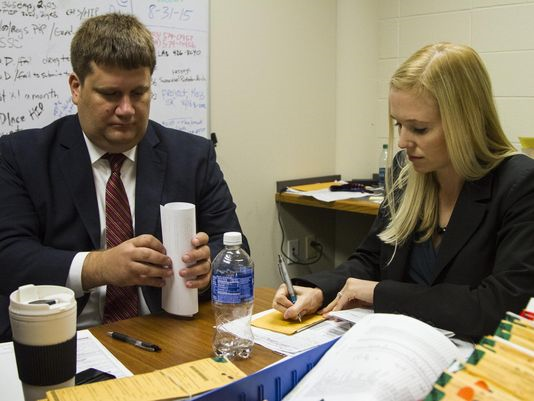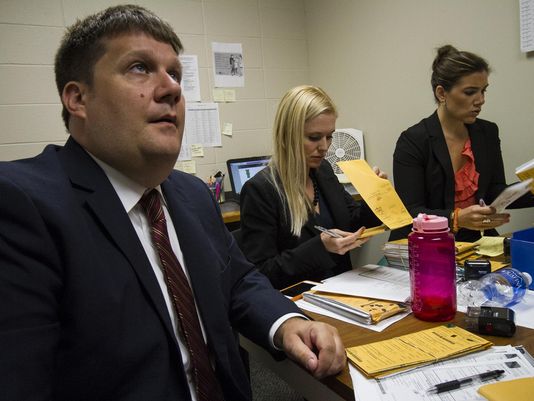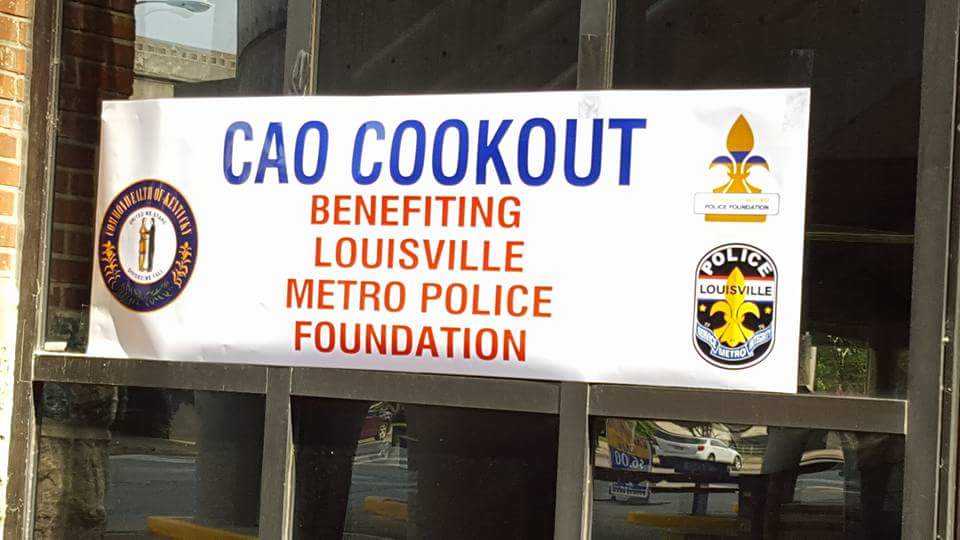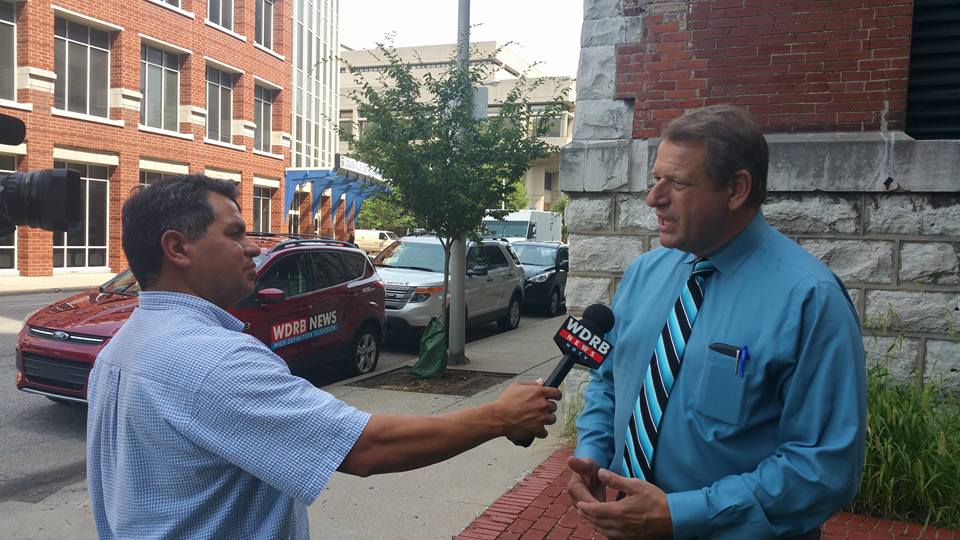With heroin arrests rising nearly 700 percent in the last four years, Jefferson County prosecutors are taking a new approach to some of those cases, emphasizing addiction treatment over jail.
By utilizing a “rocket docket” model, prosecutors said heroin users ideally would get rehab help more quickly, spend less time in the court system and have lower chances of committing new crime.

The need for such a program was clear, said Assistant Commonwealth Attorney Frank Dahl. Between 2011 and 2014, heroin possession arrests by Louisville Metro Police rose from 190 to 1,500.
“I think it’s in everybody’s best interest for something like this to succeed,” he said. “This system now, the status quo, isn’t working.”
Too often defendants go through detox in the city jail, which has been forced in recent years to ramp up its medical staff as more and more addicted inmates face heroin withdrawal behind bars. Criminal cases can drag on for months in the court system, leaving some released defendants vulnerable to relapse. They reuse. They re-offend. And the cycle starts anew.
But it’s unclear how the goals of the new docket will match up with the existing rehab resources available in Louisville, some of which have been strained for years by the heroin epidemic.
Local providers, such as the Healing Place and the Jefferson Alcohol and Drug Abuse Center, said the docket is a welcome and much needed approach for dealing with addiction in the criminal justice system. But they, too, said it’s too early to determine the level of need the docket will generate.
Dahl said his team is working to keep lines of communication open with service providers to make sure defendants are channeled into a community that can help.
“I think everyone in this day and age gets that addicts are suffering from a mental health addiction,” he said. “Locking them up and throwing away the key is not going to fix the problem.”
How it will work
Rocket dockets are simple in concept — prosecutors from both the commonwealth and county attorney’s offices bypass the grand jury process on low level offenses to expedite cases. This docket will have the dual goal of speeding up cases and channeling defendants into community provider rehab and not into an already-full jail.
The new initiative is actually an expansion on an existing rocket docket program, which started in Jefferson County in 1993.
The docket expansion is just one of the aftereffects this year’s of Senate Bill 192 — the Heroin Bill. Lawmakers allocated $1.2 million specifically for the creation or expansion of rocket dockets across the state.
The $108,000 grant Jefferson County secured will cover two prosecutors through next June. The prosecutors — current Assistant Commonwealth Attorneys Diane Arnold and John Balenovich — will work low-level heroin possession and trafficking cases.
When a heroin-related arrest is made in Louisville, it will be the goal of the two heroin rocket docket prosecutors to quickly connect with the case.
“We’re trying to identify high risk heroin addicts who are in need of immediate treatment,” said Dahl, who serves as the division chief of narcotics unit and was designated as a special heroin prosecutor.
Dahl estimates they will handle 30 to 40 heroin-related cases each week, which they’ll screen for a number of factors to see if rocket docket would be a good fit.
A defendant’s past criminal history, current charges and circumstances of the arrest will all be considered to weed out those determined by prosecutors to be hard-core criminals and traffickers from addicts who commit crime to feed their illness.
By finding the cases quickly in district court, heroin rocket docket prosecutors can intervene, asking judges at the bond-setting stage to consider conditional discharge from custody with mandatory treatment options in lieu of imprisonment. Prosecutors could make similar offers again at the sentencing phase, Dahl said.
A heroin possession case could be cut from six to seven months down to 30 to 60 days, said Commonwealth Attorney’s Office spokesman Jeff Cook.
Only defendants who want to cooperate in the rocket docket process are eligible, Dahl noted. They’ll have to agree to plead guilty, he said, and judges will have the option of sentencing them to mandatory rehab options in the community. And if those terms aren’t fulfilled, Dahl said, harsher sentencing could await.
“If everything goes well, hopefully we’ll never hear from them again,” Dahl said. “Hopefully for each of them it’s a long term recovery.”
The finer details of how defendants will be assessed and matched with community providers, who will follow up with them to ensure they’re completing treatment and who will notify prosecutors if they’re not compliant have yet to be worked out.
“We’re kind of an experiment of one right now,” Dahl said.

Getting to treatment
The heroin rocket docket team has spent much of this week preparing for a full launch Aug. 10, coordinating with judges and assistant county attorneys to figure out procedures and protocols. They’re also reaching out to the community addiction treatment providers — critical to the aims of the initiative.
Diane Hague is the director of the Jefferson Alcohol and Drug Addiction Center, one of the Seven County Services.
Hague said the rocket docket will hopefully help more people get treatment they need to get their lives back on track.
“In the treatment area, we can do lots of things,” she said. “But if someone decides they don’t have to do it or it’s too hard, what can we say? We have nothing to hold over anyone’s head.”
The extent of the court’s follow-through will be a key factor to the success of the rocket docket, Hague said. Dahl noted the policy is still being developed, but that he envisions a system where the courts and providers communicate about defendant compliance.
The addiction center offers inpatient and outpatient services and accepts private insurance, healthcare benefits such as Medicaid and also covers some costs with indigent funds.
Determining how heavily the docket will rely on their resources is difficult, Hague said, given the newness of the initiative. A variety of factors, including a defendant’s addiction history, past treatment attempts and insurance status, need to be assessed on a case-by-case basis to determine which provider and what type of treatment is most appropriate.
The addiction center is considering hiring a counselor to assist prosecutors in that screening process.
“There is no one treatment fits all,” Hague said, adding that some defendants will need long-term inpatient care, others will need intensive outpatient care while living at a halfway house while some might only need detox care followed by Narcotics Anonymous meetings.
Treatment providers are in a wait and see mode, Hague said. She added there are fewer community treatment beds for those without private insurance and healthcare benefits such as Medicaid.
There’s a two-day wait for such beds at the Jefferson Alcohol and Drug Addiction Center. At the Healing Place, another treatment provider, president Karyn Hascal recalled a day two weeks ago where the nonprofit turned away 30 people wanting free detox beds by 9 a.m.
Still, Hascal said the new docket is a progressive move she thinks will be successful, as it intervenes early in the criminal justice process with treatment, “striking while the iron is hot.”
Hague, too, said she is optimistic the rocket docket will connect people to appropriate treatment and ultimately save lives.
“We all have the same goal. We want the same people in treatment,” Hague said. “Well, let’s see how we get them there.”
Reporter Matthew Glowicki can be reached at (502) 582-4989. Follow him on Twitter at @MattGlo.
Highlights
- Between 2011 and 2014, heroin possession arrests by Louisville Metro Police rose from 190 to 1,500.
- Two experienced prosecutors are heading the new initiative, funded by a $108,000 grant made possible by the Heroin Bill passed in the state legislature in the spring.
- Prosecutors will evaluate cases individually based on many factors, including past criminal history, current charges and addiction history.
- It’s not yet clear how many defendants will be helped by the new docket or which community treatment providers will be most utilized.
- Two of the largest addiction treatment providers, The Healing Place and the Jefferson Alcohol and Drug Abuse Center, agree the new effort is much needed, though they aren’t yet sure what volume of defendants to expect.
Posted with permission of the Courier-Journal. Link to original article: Prosecutors’ new ‘rocket docket’ targets heroin

